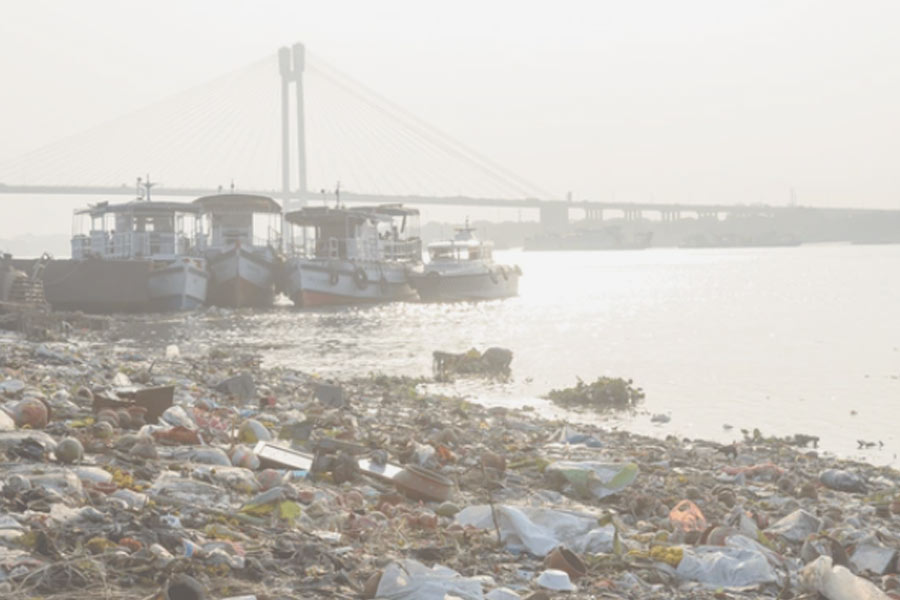Three air quality monitoring stations in Calcutta recorded “poor” air and four recorded “moderate air” on Sunday morning.
With winter approaching, scientists feared the city’s average air quality would only worsen.
Doctors said the worsening air quality means people with lung diseases or those with allergic rhinitis will experience an aggravation of their symptoms. A pulmonologist said some of his patients have started complaining that their sufferings have already intensified.
The monitoring stations that recorded “poor” air at 6am on Sunday are located in Ballygunge, Bidhannagar and Fort William. The ones that recorded “moderate” air are at Rabindra Bharati University (BT Road campus), Rabindra Sarobar, Victoria Memorial and Jadavpur.
The readings at all seven stations were the same at 5pm, too.
The air quality reported at any point in time is an average of the quality in the previous 24 hours, said an official in the state pollution control board (PCB).
According to the Central Pollution Control Board, “poor” air can cause “breathing discomfort to most people on prolonged exposure” and “moderate” air can cause “breathing discomfort to people with lungs, asthma and heart diseases”.
“I am having patients complaining of breathing problems, cough and phlegm. Some of them have been advised to get admitted to hospital because of their co-morbidities or old age,” said Arup Halder, a pulmonologist at the Calcutta Medical Research Institute.
“A drop in the air quality exacerbates asthma and COPD (chronic obstructive pulmonary disease). Those with lung or heart diseases are more vulnerable.”
Halder advised people who need to be outdoors in the morning to wear masks because the air pollution level in the winter months peaks in the early hours.
An infectious disease specialist said polluted air weakens the body’s defence mechanism and increases the chances of infections.
The air quality could drop further as the mercury slides in the coming days. “The air closer to the ground is cooler in winter compared with the air in the summer months. Cool air, being heavy, cannot rise as much as warm air, resulting in pollutants getting trapped in the layer close to the ground. That is the air we breathe,” a scientist said.
Abhijeet Chatterjee, a professor of environmental science at Bose Institute, said the authorities must curb attempts to burn solid waste in the open.
“Burning of solid waste releases toxic chemicals, worsening the air pollution. This needs to be stopped at any cost,” Chatterjee said. “Urban solid waste contains plastic, which, when burned, releases polynuclear aromatic hydrocarbon, a highly toxic compound.”
Regular watering of dusty roads prevents resuspension of dust and helps keep air quality under control, a scientist said.










